- Home
- Robert Rankin
Apocalypso Page 9
Apocalypso Read online
Page 9
A hole, perhaps?
‘Aaaaaaaaaagh!’ went Porrig, which is what you do when falling into something deep and dark (a hole, perhaps). Then, ‘Oh,’ as he was standing now upon a wooden floor, unscathed. And dark it was no more, because a light shone all around. And Porrig looked and Porrig saw and Porrig did not then believe at all in what he was seeing.
Porrig stood on the polished floor of a bookshop. But it was not his bookshop, neither was it The Flying Pig. This bookshop was old, centuries old, if a bookshop it was. It had more the look of one of those monastic libraries. Ancient leathern tomes with burnished hasps and locking bits. Scrolls of parchment. Vellum pages bound with silk.
Porrig caught what breath he could. He wasn’t dreaming, he was sure of that, but he wasn’t at the bottom of his stairs. He was somewhere or other that he shouldn’t be and he knew, just knew, that he wasn’t alone.
Porrig peered down a long aisle of musty old volumes. Something was moving, and it was a something, rather than a someone.
Porrig screwed up his eyes. ‘No,’ he whispered. ‘I’m not having that.’
The something had a quality of not quite being there. It wavered and it wafted, it went in and out of focus. It was wraith-like, it was ghostly, it was— ‘It’s a pig,’ said Porrig. ‘It’s a pigging pig.’
The pig, for such it evidently was, turned its snout towards Porrig, made a most obscene noise and vanished.
‘Who did that?’ someone shouted. ‘Who has offended the pig?’
Porrig ducked away behind the nearest stack of books. ‘I am dreaming,’ he whispered. ‘Pig equals pork sausage. It’s always pork sausages in my dreams. And I don’t even like pork sausages.’
‘Who offended the pig?’ The voice was louder. The voice meant to know. Porrig ducked and slunk away. There was quite a lot of away to slink to. The bookcases and tables of scrolls and racks of paper and piles of old parchment went on and on and on.
Porrig broke into a run and, some time later, breathless, scared and quite down-hearted, he sat himself down on the floor. ‘Just reason it out,’ he said, between gaspings. ‘What has happened to you? Have you fallen into some parallel world, or down a hole in time, or through a crack in the clouds—’
‘Or up your own fundament,’ said a voice.
Porrig jumped to his feet. ‘Who said that?’
‘I did.’
‘Where are you?’
‘I’m here, but I’m not coming out.’
‘Then don’t. Just tell me where I am and how I get back to where I came from.’
‘Use your key. You did bring your key, didn’t you?’
‘What key?’
‘That would be a “no”, I suppose.’
‘Where are you?’
‘I’m up here. But I’m not coming down.’
‘Why not?’
‘Because you’d get yourself all in a state if I did.’
‘Of course I wouldn’t. I mean, you’re not a pig, are you?’
‘Of course I’m not a pigging pig. How dare you?’
‘Then come out.’
‘Okey-dokey.’ There was a scuffling amongst the books above Porrig’s head and then something small and definitely on the strange side climbed slowly down and stood before Porrig.
Before and a good way beneath.
Porrig stared down and his mouth dropped open.
‘It’s very rude to stare,’ said the something. ‘You ought to be taught some manners.’
Porrig’s head bobbed slowly in agreement, but words would not come to him.
Before him and beneath stood a creature so queer and oddly formed that Porrig was completely lost for anything to say.
In height it barely topped at eighteen inches.
Its skin was dry and dull and breeze-block grey.
Its head was high and domed and almost hairless.
It was insect-thin and naked; it was weird and it was fey.
It had no nose to speak of
And its eyes were like a cat’s.
Its lipless mouth was boasting just three teeth.
In the fingers of its left hand
It held a magic wand
And Porrig stared and Porrig said, ‘good grief.’
‘Poetic, aren’t I?’ said the little creature. ‘The name is Rippington, what’s yours?’
‘Mine is Porrig,’ said Porrig, in a silly shaky voice.
‘Pleased to meet you, Porrig.’
And the thing stuck out its hand. ‘And I’m not a thing, nor an it, I’m a dvergar.’
‘I’m a Leo,’ said Porrig.
‘Was that supposed to be funny?’
‘I expect it was supposed to be.’
‘Well, it wasn’t.’
Porrig shook the tiny hand. It was cold. It was very cold. ‘Your tiny hand is frozen,’ said Porrig.
‘And yours is way too hot. What manner of being are you then? Clurichaun, are you? Gremlin?’
‘Leave it out. I’m a person.’
Rippington sniffed at Porrig. ‘I don’t think you’re supposed to be here,’ he said.
‘I just want to go home.’
‘Well, use your key. Ah, no, you haven’t got your key, have you?’
‘What key? The shop key? I haven’t any other key.’
‘It’s not that kind of key. It’s a musical key. You don’t know what key you’re in, do you?’
‘I haven’t the foggiest idea what you’re talking about.’
‘I’m talking about harmonics, obviously. If you don’t know what key you’re in, no wonder you’re out of tune.’
‘Is this a theme park?’ Porrig asked.
‘A what?’
‘A theme park. This isn’t Lord of the Rings World, or something?’
‘Or something.’
‘Yeah, right.’
‘This is ALPHA 17,’ said Rippington. ‘Seventeenth harmonic in the Alpha scale. But if you say you’re a person then you most definitely shouldn’t be here. Persons are a different scale altogether. Betamax, or something.’
‘Betamax?’
‘I could look you up in the big book.’
‘You said ALPHA 17. That’s the bookshop where I’ve come from.’
‘They don’t sell books in shops,’ said Rippington. ‘That really would be absurd. Imagine what would happen if just anything could get its mitts on a book. Chaos there’d be. Oh yes. No more harmony, everything out of key.’
‘I’ll bet this is all really cosmic stuff,’ said Porrig. ‘But personally I’ve never had too much of an interest in elves and goblins and all that sword and sorcery rubbish.’
‘You’re a bit of a no-mark, aren’t you?’
‘Oh perfect,’ said Porrig. ‘Even the fairies have me down as a loser.’
‘Do you want me to look you up in the big book, or don’t you?’
‘I do, yes please.’
‘Then follow me. But pretend that you’re not, if you follow me.’
‘Yes, I think that I do.’
And so Porrig followed Rippington, whilst pretending that he wasn’t, down between the aisles of books, along stone corridors, around balconies that looked down upon further balconies and further corridors, through halls lined with more books and rooms lined with even more. And on and on and on some more.
‘Are we nearly there yet?’ Porrig asked.
‘Are you following me?’
‘Yes, but I’m pretending not to.’
‘Then pretend not to speak to me either.’
‘But are we nearly there yet?’
‘Let’s pretend that we are.’
‘All right. I’m pretending.’
‘Then we’re here.’
‘Absurd.’
‘I do so agree. Help me up onto the desk.’
Porrig dithered a little. He did not like the feel of Rippington.
‘I don’t like the feel of you either. Just lift me up.’
‘There you go, then.’
It was a great big ol
d desk and it was covered by many big old papers, maps of unlikely places and manuscripts scrawled in fanciful lettering.
‘Here’s the big book,’ said Rippington.
Porrig stared down at it. ‘That’s not a very big big book,’ he said.
‘Size is relative, you know. Now let’s have a look. Person, you said, let’s see. Pergola, I’ve got. It says, see: Trumpet. That’s not even close, is it?’
‘Let me have a look.’
Rippington waved his magic wand about. Porrig felt an unpleasant itching sensation. He rubbed at his hand. ‘Please don’t do that,’ he said.
‘Then keep your mitts away from the big book. Ah yes, hold your fire, Mr no-mark. Person. It says, see: human being. Would that be the one?’
‘Yes it would.’
Rippington leafed through the little pages of the big book. He paused now and then and looked sidelong at Porrig. Sidelong and up quite a bit. At greater length he ceased to read and closed the book, and sat cross-legged upon it. ‘We have a situation here,’ he said.
‘We do?’ said Porrig.
‘We surely do. According to the big book, you are a mythical being.’
‘I am?’ said Porrig.
‘You are and you come from a magical kingdom high above.’
‘I do?’ said Porrig.
‘You do. And I am apparently now in a state of grace because I’ve met you.’
‘You are?’
‘I am. Well, no, actually I’m not. But I could pretend to be if it would make you feel more at home.’
‘It wouldn’t,’ said Porrig.
‘So what are you going to do? Are you going to grant me a wish? I’d quite like a hat A really big one. Size being relative and all my relatives having bigger ones than me.’
‘I just want to go home.’
‘Back to heaven, do you mean?’
‘I’m not from heaven. I’m from Earth.’
‘Same place.’
‘It’s not the same place. Look, where’s the exit? Is there someone in authority? Who runs this mad house?’
‘That would be the curator.’
Porrig sighed. ‘And would I be right in supposing that the curator is a bowed old gentleman with a long white beard, a conical hat and a gown all covered in stars?’
Rippington shook his little head. ‘No-mark,’ he said.
‘All right,’ said Porrig. ‘Then let me have another try. Would I be right in supposing that the curator is an old gentleman? That he doesn’t have a long white beard, but that he does look a bit like a dog, with two white tufts of hair on the top of his head?’
‘Well,’ said Rippington.
‘Well?’
‘That’s a pretty good supposition.’
‘And would you be impressed if I went for the double and told you his name?’
‘Very,’ said Rippington. ‘Apocalypso The Bloody Miraculous.’ said Porrig.
‘Well, zippity doo-dah-day.’ said Rippington.
‘So I’m right!’ said Porrig.
‘No,’ said Rippington, ‘you’re wrong. But one out of two wasn’t bad. Now, about my big angelic hat . . .’
9
The largest hat in the whole wide world belonged to Dilbert Norris. It was approximately a yard and a half in length and resembled a sprout.
Dilbert would have liked a bigger one. But then Dilbert was not as other men. Dilbert was, in fact, not a man at all. Dilbert was a vegetable.
For those who prefer clarity to inference, let it now be said that Dilbert Norris was the creature in the seven-pointed spacecraft that had recently been hauled from the depths of the Pacific Ocean.
And also, that although much of what Dr Harney had to say about Dilbert was correct, the appellation attached to Porrig’s previous employer at the Used Car Emporium could not be applied to him. Dilbert was not mad, time had not addled his brain, he was neither stone-bonker nor space cadet. Dilbert Norris was a sentient vegetable, and sentient vegetables see and do things differently.
On Dilbert’s home planet there had been no mammals, no herbivores to gorge themselves on nature’s bounty and interfere with the true path of evolution: that of vegetable rather than mammal. On Dilbert’s home planet, Eden, the vegetable kingdom had become the kingdom, vegetables the rightful heirs to the earth in which they grew.
It was all peace and harmony upon Eden, where no serpent, or perhaps more appropriately, no cow, had ever entered the garden of paradise.
Now, it is surely self-evident that a universal truth must apply, no matter in which part of the universe you choose to apply it. And the universal truth that the highest life form on a planet with an atmosphere and a gravity similar to that of Earth will have man-like characteristics, is one of these very truths.
You can fiddle about a bit with the basic design features, but a head at the top end with eyes in the front, a pair of legs to get about on and those all-essential opposing thumbs are prerequisites.
Dilbert Norris was man-like, as were all of his ilk. But Dilbert’s ilk possessed certain powers that humankind do not.
It has long been accepted that plants are capable communicating with one another, although the means by which this is done are not fully understood. Nor, it can be said with some authority, are they ever likely to be, as man’s inability to understand even his fellow man, let alone plants, and his basic attitude to the vegetable (which he sees foremost as a source of food rather than wisdom), puts the kibosh on this from the outset.
The relationship between man and vegetable is a very one-sided affair.
Vegetables communicate telepathically, as do some fish, most insects, yellow-handled screwdrivers, car keys, biros and small screws from the insides of pop-up toasters.
Only one man in history has ever come to terms with this and he is Hugo Rune and his is another story.
Dilbert’s bunch, having evolved into their man-like forms, still retained their telepathic abilities, and it was by means of these that Dilbert found himself able to exert control over the beings he encountered here on Earth. Beings who, by the very nature of their eating habits, were his natural enemies. Or, in his case, unnatural, as none existed on his particular planet.
In describing Dilbert’s physical appearance the word ‘tricky’ springs to mind. Not that he looked tricky (although he did), but more because it is tricky to find flattering prose when describing a creature some twenty feet high, weighing in at approximately two tons, that resembles a man-shaped sprout and possesses a really bad attitude towards the human race.
No doubt Dilbert would have been considered a good-looker on Eden, a regular beau, a dandy, drop-dead gorgeous and hot to trot. But here on Earth, and casting ‘tricky’ to the four winds, there could be no hesitation in referring to him as one big fat ugly-looking son of the sod.
And he smelled bad too.
On Eden Dilbert had not amounted to very much, a verdant version of Tom Cruise perhaps, but a tad intellectually challenged. A second-rate clerk in a town-planning department, he spent most of his days staring dreamily out of the window and planning plans of his own about what he might do if he ever won the National Lottery. For it is another universal truth that no matter where a civilization rises, there will always be clerks looking dreamily out of windows and there will always be a National Lottery.
For the most part these clerks must dream on, but in Dilbert’s case fate had other plans. Dilbert came up trumps on the National Lottery and bought himself a spaceship.
And the rest is history.
Although not the history you will read about in many other books. Especially those of a religious nature.
In all fairness it has to be said that Dilbert never intended to set himself up as a god. Not originally. When he set out from Eden in his spacecraft it was with the intention of finding a new world for the folk of Eden and earning the big kudos that went with such a discovery. Had it ever crossed his mind that things would work out in the way they did, he would probably have stayed at home.
Although home was getting very crowded. And had things worked out a little differently on his arrival here, he would probably never have acted in the way he did.
But it didn’t, and they did, and he didn’t and they didn’t and so he did. As it were.
Location can often be everything and had not Dilbert’s craft chosen the island later to be known as Gwa’tan Qua Cest’l Potobo as an ideal landing site things might have gone a little more smoothly and much unpleasantness been avoided.
But it didn’t, and it wasn’t.
The spacecraft dropped down out of the clear blue sky halfway through the ceremony to inaugurate the instatement of the new village head man. An omen if ever there was one.
The natives gathered about the seven-pointed craft, which bore to them an uncanny resemblance to a giant wok, and looked on in awe as it opened to reveal to them something that bore an uncanny resemblance to a giant version of a particularly toothsome local vegetable: the sand sprout.
It was as clear as clear was possible to be that the gods had sent down an offering. A food parcel from on high. And all they had to do was cook it up and tuck in.
They got a nice big fire going under Dilbert’s spacecraft.
Now, to be awoken from one hundred thousand years in cryogenic suspension by a bunch of aliens roasting you up for dinner is no-one’s idea of a good time and, rightfully miffed at this abhorrent circumstance, Dilbert arose in displeasure.
And also in pain.
Pain was an entirely new experience for Dilbert who came from a planet where thoughts are shared. For when thoughts are shared, then so is pain, which probably explains why, as a race, vegetables are so much nicer than people.
At that moment Dilbert didn’t feel very nice. He was hurt and he was angry. He was all alone on a far-distant world, under attack from beings that, although basically the same shape as himself, were far smaller and far nastier and whose intentions towards him were hostile.
It was not to be a meeting of minds. Nor was it to be ‘hands across the universe’. The die was cast, as they say. The battle lines were drawn.
And when Dilbert discovered within minutes of leaping hot-bottomed from his spacecraft that he could mentally inflict pain upon his attackers, but that they were unable to do likewise to him, and when the sheer enormity of these beings’ dining habits was brought home to him, it took him no more than a moment to decide their fate. If his race were to colonize this planet, then the indigenous population would have to be either exterminated, or brought under control.

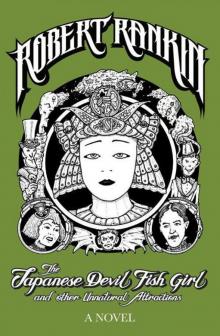 The Japanese Devil Fish Girl and Other Unnatural Attractions
The Japanese Devil Fish Girl and Other Unnatural Attractions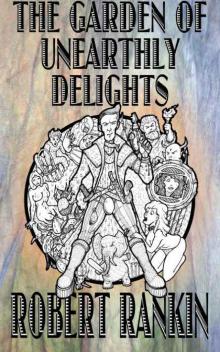 The Garden of Unearthly Delights
The Garden of Unearthly Delights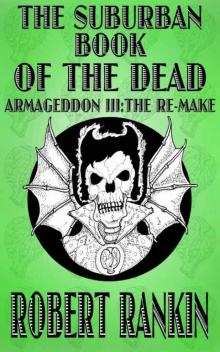 The Suburban Book of the Dead: Armageddon III: The Remake
The Suburban Book of the Dead: Armageddon III: The Remake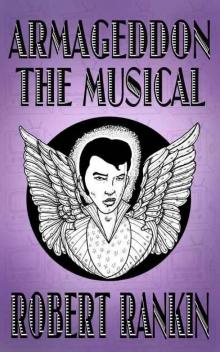 Armageddon_The Musical (Armageddon Trilogy Book 1)
Armageddon_The Musical (Armageddon Trilogy Book 1)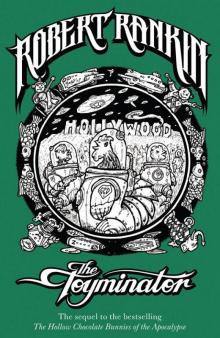 The Toyminator
The Toyminator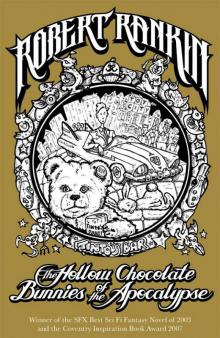 The Hollow Chocolate Bunnies of the Apocalypse
The Hollow Chocolate Bunnies of the Apocalypse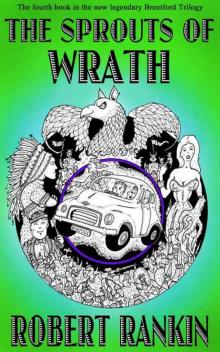 The Sprouts of Wrath
The Sprouts of Wrath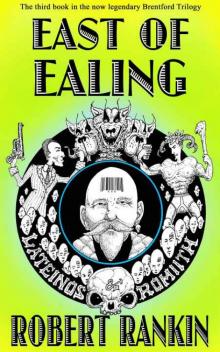 East of Ealing
East of Ealing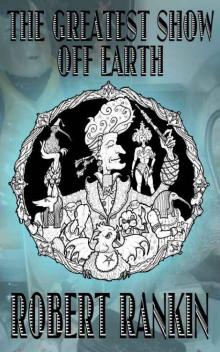 The Greatest Show Off Earth
The Greatest Show Off Earth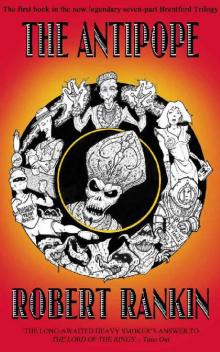 The Antipope
The Antipope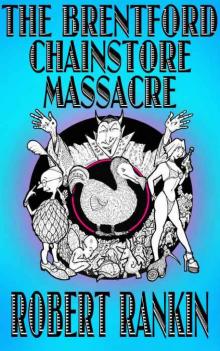 The Brentford Chainstore Massacre
The Brentford Chainstore Massacre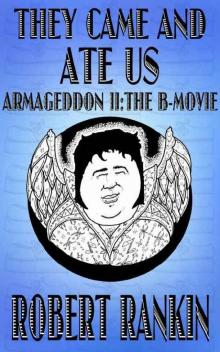 They Came and Ate Us_The B-Movie (Armageddon Trilogy 2)
They Came and Ate Us_The B-Movie (Armageddon Trilogy 2)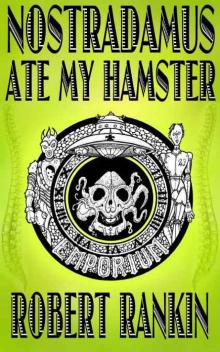 Nostradamus Ate My Hamster
Nostradamus Ate My Hamster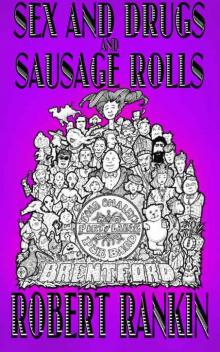 Sex and Drugs and Sausage Rolls
Sex and Drugs and Sausage Rolls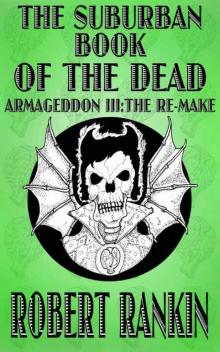 The Suburban Book of the Dead_The Remake (Armageddon Trilogy 3)
The Suburban Book of the Dead_The Remake (Armageddon Trilogy 3)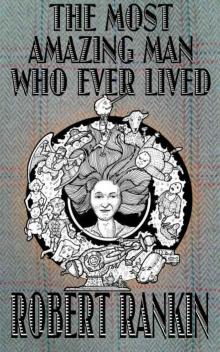 The Most Amazing Man Who Ever Lived
The Most Amazing Man Who Ever Lived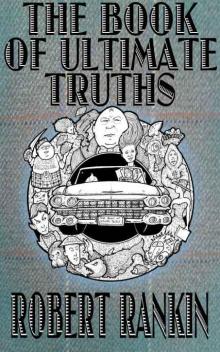 The Book of Ultimate Truths
The Book of Ultimate Truths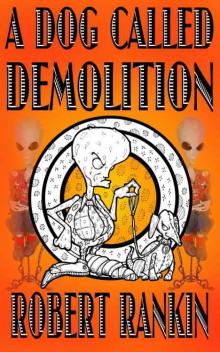 A Dog Called Demolition
A Dog Called Demolition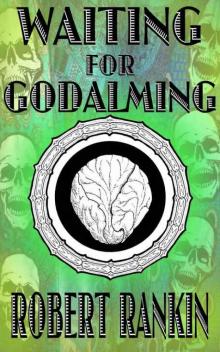 Waiting for Godalming
Waiting for Godalming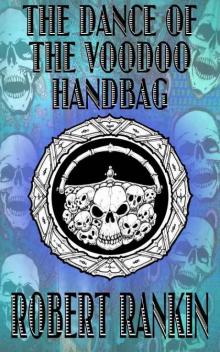 The Dance of the Voodoo Handbag
The Dance of the Voodoo Handbag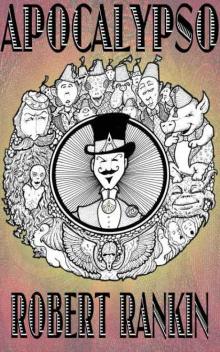 Apocalypso
Apocalypso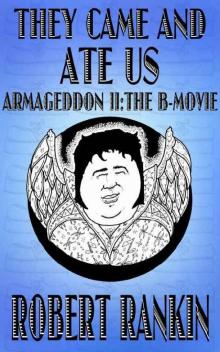 They Came and Ate Us: Armageddon II: The B-Movie
They Came and Ate Us: Armageddon II: The B-Movie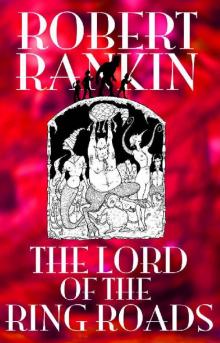 The Lord of the Ring Roads
The Lord of the Ring Roads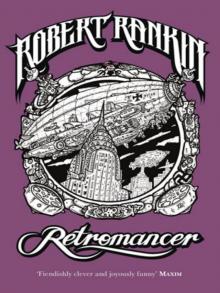 Retromancer
Retromancer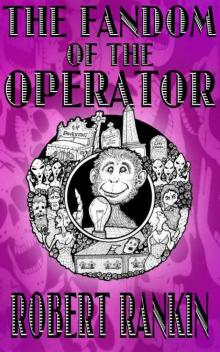 The Fandom of the Operator
The Fandom of the Operator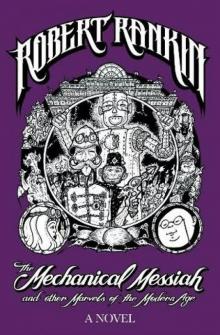 The Mechanical Messiah and Other Marvels of the Modern Age
The Mechanical Messiah and Other Marvels of the Modern Age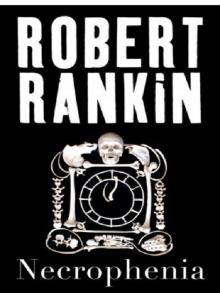 Necrophenia
Necrophenia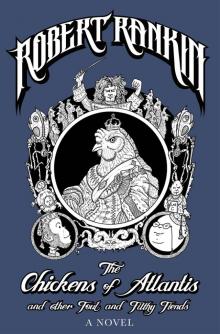 The Chickens of Atlantis and Other Foul and Filthy Fiends
The Chickens of Atlantis and Other Foul and Filthy Fiends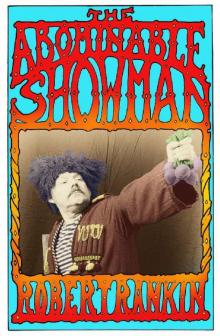 The Abominable Showman
The Abominable Showman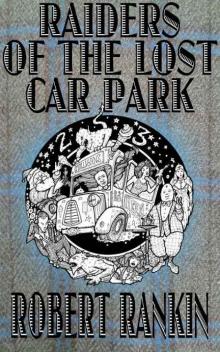 Raiders of the Lost Carpark
Raiders of the Lost Carpark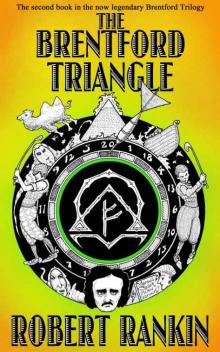 The Brentford Triangle
The Brentford Triangle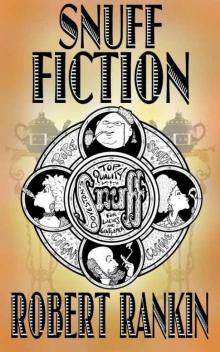 Snuff Fiction
Snuff Fiction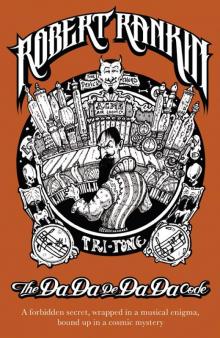 The Da-Da-De-Da-Da Code
The Da-Da-De-Da-Da Code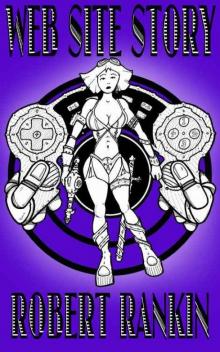 Web Site Story
Web Site Story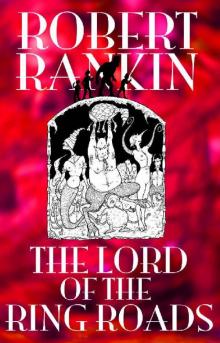 The Lord of the Ring Roads (The Final Brentford Trilogy Book 1)
The Lord of the Ring Roads (The Final Brentford Trilogy Book 1)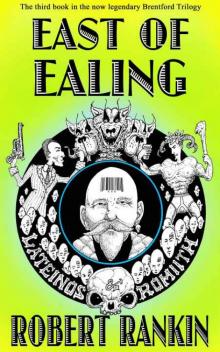 East of Ealing (The Brentford Trilogy Book 3)
East of Ealing (The Brentford Trilogy Book 3)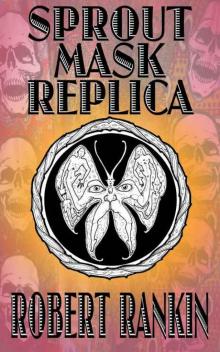 Sprout Mask Replica (Completely Barking Mad Trilogy Book 1)
Sprout Mask Replica (Completely Barking Mad Trilogy Book 1)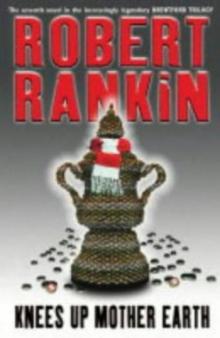 Knees Up Mother Earth bs-7
Knees Up Mother Earth bs-7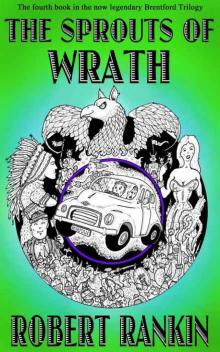 The Sprouts of Wrath (The Brentford Trilogy Book 4)
The Sprouts of Wrath (The Brentford Trilogy Book 4)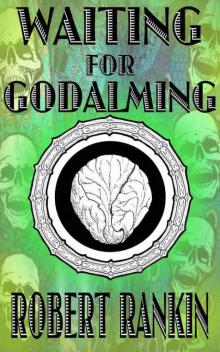 Waiting for Godalming (Completely Barking Mad Trilogy Book 3)
Waiting for Godalming (Completely Barking Mad Trilogy Book 3)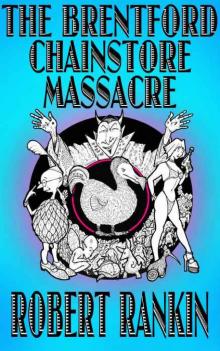 The Brentford Chainstore Massacre (The Brentford Trilogy Book 5)
The Brentford Chainstore Massacre (The Brentford Trilogy Book 5)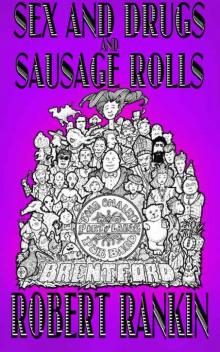 Sex and Drugs and Sausage Rolls (The Brentford Trilogy Book 6)
Sex and Drugs and Sausage Rolls (The Brentford Trilogy Book 6)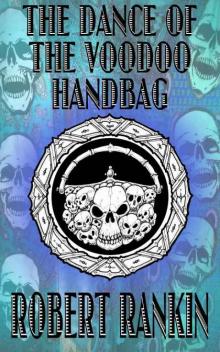 The Dance of the Voodoo Handbag (Completely Barking Mad Trilogy Book 2)
The Dance of the Voodoo Handbag (Completely Barking Mad Trilogy Book 2)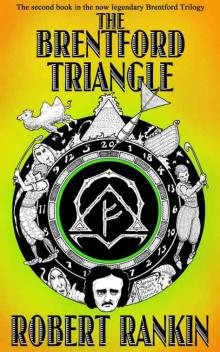 The Brentford Triangle (The Brentford Trilogy Book 2)
The Brentford Triangle (The Brentford Trilogy Book 2)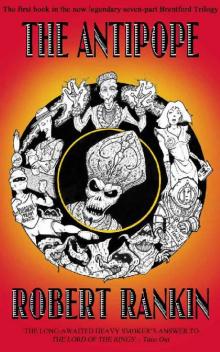 The Antipope (The Brentford Trilogy Book 1)
The Antipope (The Brentford Trilogy Book 1)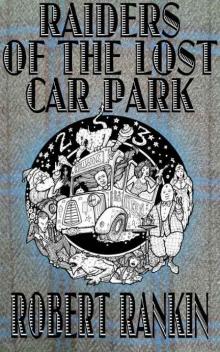 Raiders of the Lost Car Park (The Cornelius Murphy Trilogy Book 2)
Raiders of the Lost Car Park (The Cornelius Murphy Trilogy Book 2)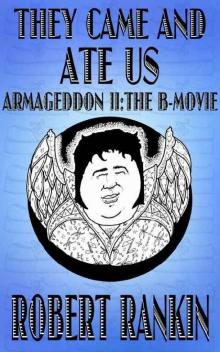 They Came and Ate Us - Armageddon II_The B-Movie (Armageddon Trilogy Book 2)
They Came and Ate Us - Armageddon II_The B-Movie (Armageddon Trilogy Book 2)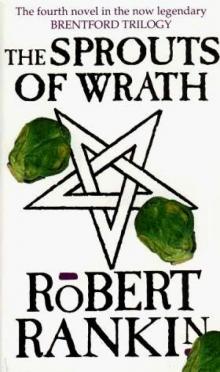 The Sprouts of Wrath bs-4
The Sprouts of Wrath bs-4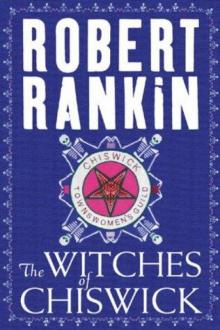 The Witches of Chiswick
The Witches of Chiswick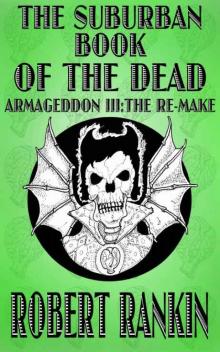 The Suburban Book of the Dead - Armageddon III: The Remake (Armageddon Trilogy 3)
The Suburban Book of the Dead - Armageddon III: The Remake (Armageddon Trilogy 3)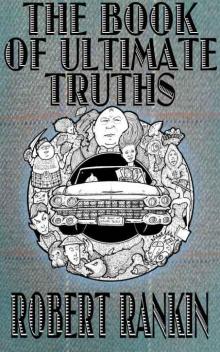 The Book of Ultimate Truths (The Cornelius Murphy Trilogy 1)
The Book of Ultimate Truths (The Cornelius Murphy Trilogy 1)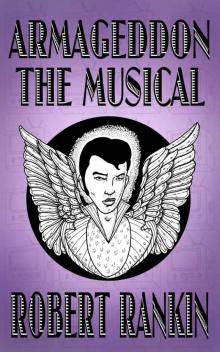 Armageddon: The Musical (Armageddon Trilogy)
Armageddon: The Musical (Armageddon Trilogy)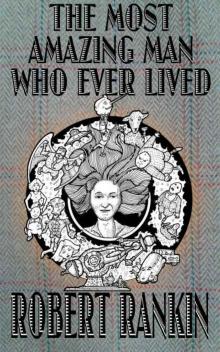 The Most Amazing Man Who Ever Lived (The Cornelius Murphy Trilogy Book 3)
The Most Amazing Man Who Ever Lived (The Cornelius Murphy Trilogy Book 3)